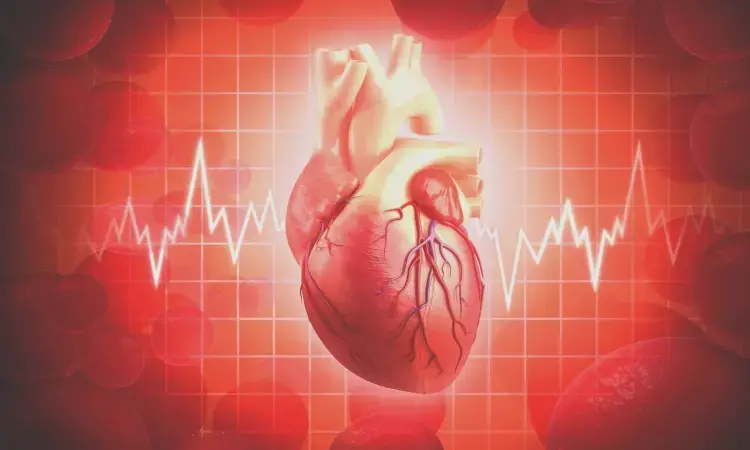- Home
- Medical news & Guidelines
- Anesthesiology
- Cardiology and CTVS
- Critical Care
- Dentistry
- Dermatology
- Diabetes and Endocrinology
- ENT
- Gastroenterology
- Medicine
- Nephrology
- Neurology
- Obstretics-Gynaecology
- Oncology
- Ophthalmology
- Orthopaedics
- Pediatrics-Neonatology
- Psychiatry
- Pulmonology
- Radiology
- Surgery
- Urology
- Laboratory Medicine
- Diet
- Nursing
- Paramedical
- Physiotherapy
- Health news
- Fact Check
- Bone Health Fact Check
- Brain Health Fact Check
- Cancer Related Fact Check
- Child Care Fact Check
- Dental and oral health fact check
- Diabetes and metabolic health fact check
- Diet and Nutrition Fact Check
- Eye and ENT Care Fact Check
- Fitness fact check
- Gut health fact check
- Heart health fact check
- Kidney health fact check
- Medical education fact check
- Men's health fact check
- Respiratory fact check
- Skin and hair care fact check
- Vaccine and Immunization fact check
- Women's health fact check
- AYUSH
- State News
- Andaman and Nicobar Islands
- Andhra Pradesh
- Arunachal Pradesh
- Assam
- Bihar
- Chandigarh
- Chattisgarh
- Dadra and Nagar Haveli
- Daman and Diu
- Delhi
- Goa
- Gujarat
- Haryana
- Himachal Pradesh
- Jammu & Kashmir
- Jharkhand
- Karnataka
- Kerala
- Ladakh
- Lakshadweep
- Madhya Pradesh
- Maharashtra
- Manipur
- Meghalaya
- Mizoram
- Nagaland
- Odisha
- Puducherry
- Punjab
- Rajasthan
- Sikkim
- Tamil Nadu
- Telangana
- Tripura
- Uttar Pradesh
- Uttrakhand
- West Bengal
- Medical Education
- Industry
CAN, a useful marker for predicting long-term complications in type 2 diabetes: Study

Seoul, Korea: A recent study found that in patients with type 2 diabetes (T2D), cardiovascular autonomic neuropathy (CAN) may be a useful marker for long-term complications including diabetic kidney disease (DKD).
The findings, published in the journal Diabetes Research and Clinical Practice, imply that monitoring of CAN helps to identify patients at high risk for future renal impairment, thus enabling further reduction in the risk of cardiovascular disease (CVD) and mortality.
The retrospective longitudinal study was conducted by Jae Hyeon Kim, Sungkyunkwan University, Seoul, Korea, and colleagues with an objective to investigate the association between cardiovascular autonomic neuropathy and incident diabetic kidney disease.
The study included 2,033 type 2 diabetes patients (mean age 57.2 years, 57.4% male, and median diabetes duration 8.0 years), free of renal dysfunction or cardiovascular disease at the initiation. The researchers performed cardiovascular autonomic reflex tests once at baseline. CAN was defined as ≥ 2 abnormal parasympathetic test results. Concurrent measurements of urine ACR and eGFR were done at baseline and every 3–6 months thereafter. Incident DKD was defined as the development of ACR ≥ 30 mg/g at two or more follow-up examinations or eGFR < 60 ml/min/1.73 m2 with ≥ 25% decrease from baseline.
The study revealed the following findings:
· During a median follow-up of 2.9 years, 290 (14.3%) patients developed DKD, comprising 79.7% (N = 231) cases of new-onset albuminuria alone, 14.5% (N = 42) cases of eGFR decline alone, and 5.8% (N = 17) cases of both.
· Compared to those without CAN, patients with CAN had a significantly higher risk of incident DKD in a multivariable Cox regression model (HR 1.56).
"CAN is may be a useful marker for long-term complications including DKD in type 2 diabetes patients," wrote the authors. "CAN monitoring helps to identify high-risk patients of future renal impairment."
"There is a need for further prospective studies to understand the independent relationship between CAN and DKD," they concluded.
Reference:
The study titled, "Cardiovascular autonomic neuropathy and incident diabetic kidney disease in patients with type 2 diabetes," was published in the journal Diabetes Research and Clinical Practice.
Dr Kamal Kant Kohli-MBBS, DTCD- a chest specialist with more than 30 years of practice and a flair for writing clinical articles, Dr Kamal Kant Kohli joined Medical Dialogues as a Chief Editor of Medical News. Besides writing articles, as an editor, he proofreads and verifies all the medical content published on Medical Dialogues including those coming from journals, studies,medical conferences,guidelines etc. Email: drkohli@medicaldialogues.in. Contact no. 011-43720751


